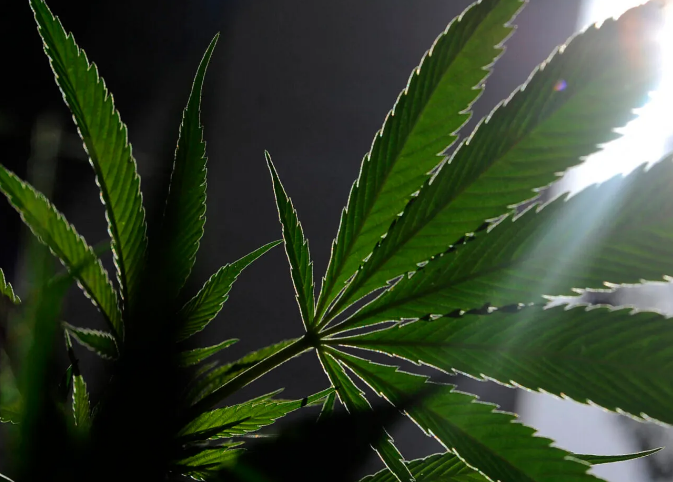In a major bipartisan vote, the U.S. Senate has passed a sweeping appropriations bill that clears the way for VA doctors to talk cannabis with patients—and quietly backs off a proposed crackdown on hemp-derived THC.
The 87-9 vote on Friday sends a clear signal: attitudes in Washington towards cannabis and hemp are softening, even if full federal legalisation remains a distant dream. For veterans in legal-use states, the move is a lifeline years in the making.
Finally, Doctors Can Speak Freely
Until now, VA physicians couldn’t even suggest medical marijuana—even if it was legal in the state and medically appropriate. That’s changing.
The new legislation gives VA doctors the green light to recommend medical cannabis to veterans. Not prescribe, mind you. But recommend? That’s a big shift.
For years, advocates have fought against what they saw as a gag order on VA doctors. This win is both symbolic and deeply practical.
One veteran advocacy group called it “the beginning of a more humane system.” For veterans dealing with PTSD, chronic pain, or opioid dependence, cannabis isn’t some trendy wellness fad. It’s a serious, researched treatment option.

The Battle Over Hemp: A Quiet But Huge Reversal
The second headline item? The Senate stripped out a proposed ban on hemp-derived products containing any detectable THC.
Yeah, that nearly slipped under the radar.
There had been talk in earlier drafts of the appropriations bill about cracking down on consumable hemp items that had even trace amounts of THC—think gummies, drinks, oils, all that jazz. But those plans are now shelved. The final version has no such ban.
That’s a big relief for an industry that’s been teetering on the edge. Hemp companies were bracing for impact.
-
A total ban on trace THC could’ve wiped out entire product lines overnight
-
Industry lobbyists warned of “catastrophic economic fallout”
-
The 2018 Farm Bill legalised hemp with less than 0.3% Delta-9 THC—but this proposal targeted all THC types, including Delta-8
So, this walk-back gives hemp entrepreneurs breathing room. At least for now.
A Look at the Vote: Who Said Yes and Why It Matters
The final 87-9 vote wasn’t particularly close. Democrats and Republicans both lined up behind the package.
The bill in question isn’t a single-issue piece. It bundles together funding for Military Construction, Veterans Affairs, Agriculture, and the FDA. That wide scope helped rally support across factions.
Interestingly, several senators who have previously spoken out against cannabis reform voted for this package. Some probably held their noses. Others might be recalibrating their stance, sensing the political winds shifting.
Only nine senators voted against it, and they were mostly from the usual “no” crowd on expansive spending or cannabis issues.
The Impact on Veterans: What Changes on the Ground?
This isn’t just a paper win. It could change lives.
A VA physician in Colorado, for instance, could now openly recommend medical marijuana to a veteran struggling with anxiety. That wasn’t legally possible last week.
What veterans won’t get is direct access through VA pharmacies. This bill doesn’t allow the VA to distribute cannabis. It’s still a recommendation-only approach. But that recommendation means everything—it helps with access, confidence, even stigma.
And it’s not just theoretical. According to a 2023 survey by Iraq and Afghanistan Veterans of America, over 80% of veterans support medical cannabis access. Many are already using it privately, without VA support.
Now, for the first time, their VA doctor can actually say: “Yes, that might help you.”
Political Messaging vs. Practical Reform
Let’s not kid ourselves—this isn’t the full decriminalisation or legalisation some lawmakers and activists want. But it’s a step, and a meaningful one.
Lawmakers know veterans are a politically powerful group. Backing cannabis reform through the lens of veterans’ health is one of the few places where left and right agree.
The hemp THC walk-back, though? That’s more about business than empathy.
Here’s a quick look at what’s changing and what’s not:
| Issue | Before the Bill | After the Bill Passed |
|---|---|---|
| VA Doctor Recommends Cannabis | Not Allowed | Now Allowed in Legal States |
| VA Prescribes Cannabis | Not Allowed | Still Not Allowed |
| VA Dispensary Access | Not Available | Still Not Available |
| Hemp THC Trace Ban | Proposed | Removed from Final Bill |
Where This Heads Next
Of course, we’re still talking about a Senate-approved package. The House needs to agree too. And that’s never a given.
The House has, in the past, been both more permissive and more unpredictable on cannabis-related legislation. Timing is everything, especially heading into a busy election cycle.
Still, the odds look decent.
Why? Because this isn’t an abstract policy debate anymore. It’s about real people—veterans. And few lawmakers want to be seen opposing vets’ access to treatment, especially in a tightly contested race.
Plus, the hemp industry has rallied fast, leaning on rural lawmakers whose districts rely on small agricultural businesses. That coalition is growing louder.
There’s still plenty that could go sideways. Politics is messy. But if the Senate vote is any signal, momentum is finally moving in one direction.



